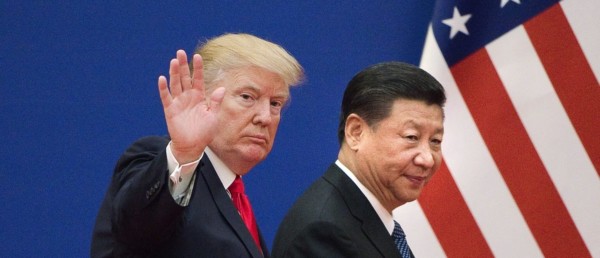
The U.S. government announced Monday it is banning American companies from doing certain business deals with a Chinese tech giant for the next seven years.
The new restrictive policy from the U.S. Department of Commerce stems from 2017 charges exacted on ZTE, the telecommunications equipment corporation, for illegally shipping American goods to Iran and North Korea. Chinese-based ZTE pleaded guilty at the time and agreed to pay $900 million in fines for violating the U.S. sanctions. But that apparently wasn’t a sufficient punishment.
Aside from illicit distribution of American resources, the U.S. is also accusing ZTE of lying to officials, “and obstructing justice including through preventing disclosure to and affirmatively misleading the U.S. Government.”
“In addition to these monetary penalties, ZTE also agreed a seven-year suspended denial of export privileges, which could be activated if any aspect of the agreement was not met and/or if the company committed additional violations of the Export Administration Regulations (EAR),” the Department of Commerce wrote on a blog post.
“ZTE misled the Department of Commerce. Instead of reprimanding ZTE staff and senior management, ZTE rewarded them,” said Department of Commerce Secretary Wilbur Ross. “This egregious behavior cannot be ignored.”
Ross and the federal agency recently issued a denial order, which is when the Export Enforcement of the Bureau of Industry and Security refuses export privileges for particular companies and individuals.
The provided background information for such order says “this is a regulatory action and is unrelated to any ongoing trade-related actions.”
Regardless of such a claim, the move comes not long after Trump imposed tariffs and strict trade measures on China in an apparent attempt to hamstring the foreign adversary, and win a so-called “trade war.”
Nevertheless, the American government’s concerns with ZTE has been known for some time, and has ostensibly picked up in recent months.
A 2012 investigative report from the House Permanent Select Committee on Intelligence enumerated strong reservations over Huawei and ZTE.
ZTE tried to convince American officials and the larger public in February that it could be trusted just days after top U.S. intelligence officials and lawmakers shared their deep-seated skepticism of the company’s technology and conduct.
The heads of the CIA, the NSA, and the FBI, as well as the director of national intelligence and several congressmen, all spoke about the potential dangers of owning or using a mobile device from foreign companies like ZTE and Huawei during a Senate Intelligence Committee hearing. (RELATED: US Lawmakers Warn AT&T To Sever Ties To Chinese Tech Company Over National Security Concerns)
“We’re deeply concerned about the risks of allowing any company or entity that is beholden to foreign governments that don’t share our values to gain positions of power inside our telecommunications networks,” FBI Director Chris Wray testified, according to CNBC. “That provides the capacity to exert pressure or control over our telecommunications infrastructure. It provides the capacity to maliciously modify or steal information. And it provides the capacity to conduct undetected espionage.”
The diplomatic measure may also be discreetly due to the edge that China seems to be making in the race for wide-scale 5G infrastructure construction and implementation. (RELATED: The Race To 5G Technology: How America Could Lose Out On The Next Biggest Thing)
ZTE, as well as Huawei, another tech giant in China, are making major investments in readying their country (which have paternalistic oversight over the quasi-private firms) for its telecoms technology and the next generation of wireless networks. The U.S. government wants its own domestic companies, like AT&T, Verizon, and several others, to build out the necessary infrastructure as efficiently as possible, but not if its done by using technology that originate from countries who try to undermine U.S. property rights or national security interests.
The U.S. Department of Commerce, the intelligence community, and key lawmakers, aren’t the only federal agencies and officials expressing or acting upon their apprehension. The Federal Communications Commission also proposed new rules, specifically to limit the amount of technology developed and offered by Huawei.
Source: The Daily Caller
